Visit the Truth and Reconciliation Trail at the Orillia Campus
Oct. 4, 2022
There’s a new and important fixture at Georgian’s Orillia Campus: The Truth and Reconciliation Trail.
Flanked by stones hand-painted in a vivid orange, the forested path is a striking visual reminder to all campus visitors about the painful legacy of residential schools in Canada.
“The trail provides an all-seasons reminder to people using it about residential schools, precious lives lost and the ongoing journey toward Truth and Reconciliation.”
Greg McGregor, Manager of Indigenous Services and Access Programs at Georgian
Georgian will use the path as an outdoor learning space that advances reconciliation through education. Georgian faculty have created reflective questions to help guide class discussions. The trail is also part of the Orillia Campus tour experience.
Georgian students and employees first placed the orange rocks and renamed the trail on Sept. 30, 2021, the inaugural National Day for Truth and Reconciliation. The event began with a prayer and ended with a circle, during which participants shared their stories and intentions for reconciliation.
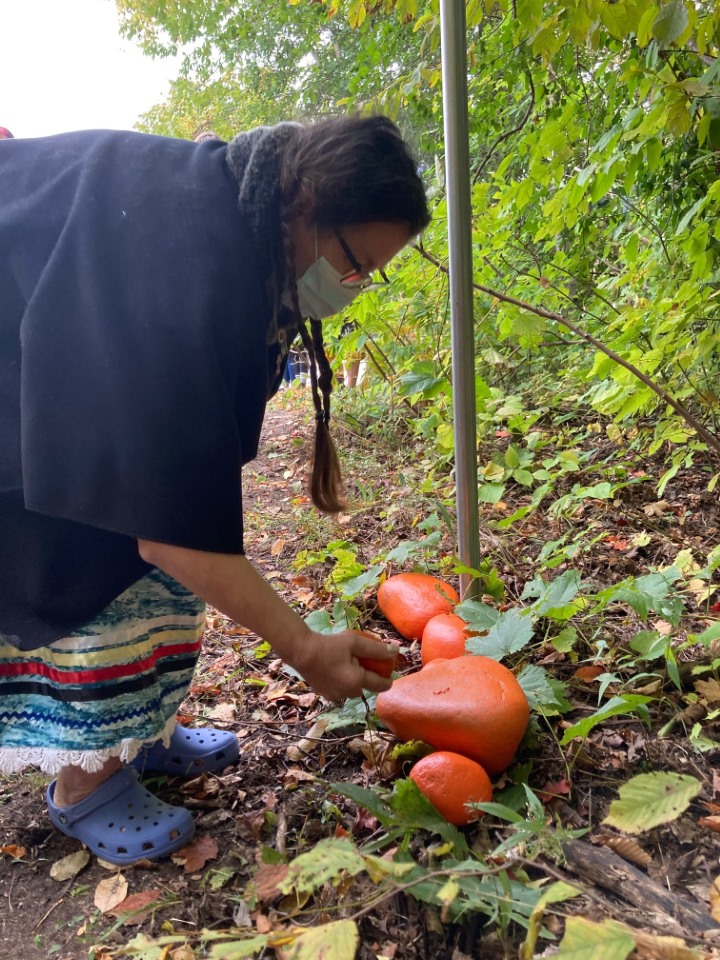
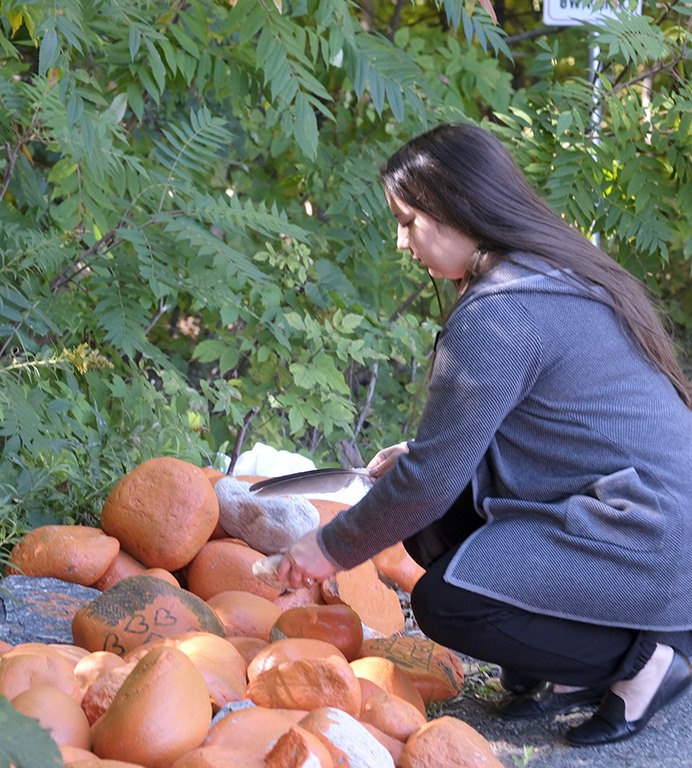
Some painted rocks were also left at the beginning of the trail so those who couldn’t attend the event could place a rock at a later time and reflect on the individual and collective role we all can play in reconciling with Indigenous Peoples of Turtle Island.
The creation of the trail was, in itself, an act of solidarity with First Nations, Métis and Inuit communities. Dozens of people – Indigenous Elders, Knowledge Keepers, students and employees – came together to paint the stones over several days.
“Each rock that we painted orange represents a child’s life lost. The placing of the rocks on the campus trail memorializes and commemorates the painful legacy of residential schools and serves to create opportunities for ongoing and continuous learning.
Mary Louise Noce, Dean of Human Services and Community Safety at Georgian
Exactly one year later on Sept. 30, 2022, a sign was unveiled displaying the new name of the Truth and Reconciliation Trail: Debwewin miinwaa Naaskodaadiwin Miikaans.
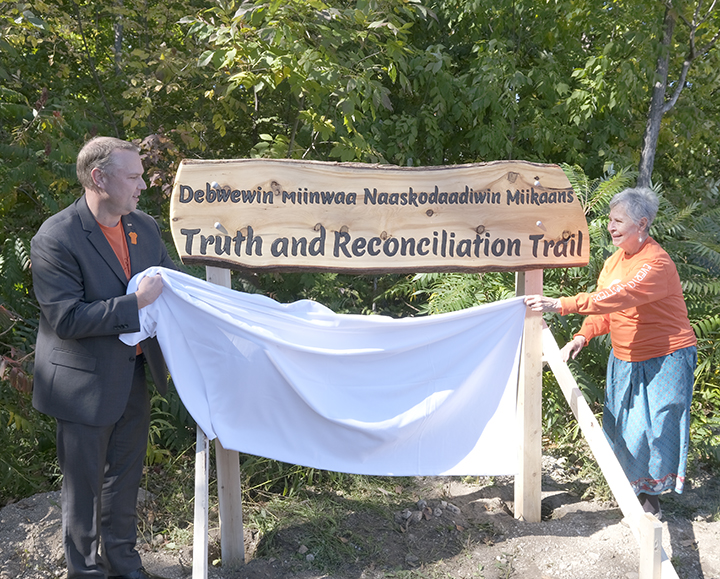
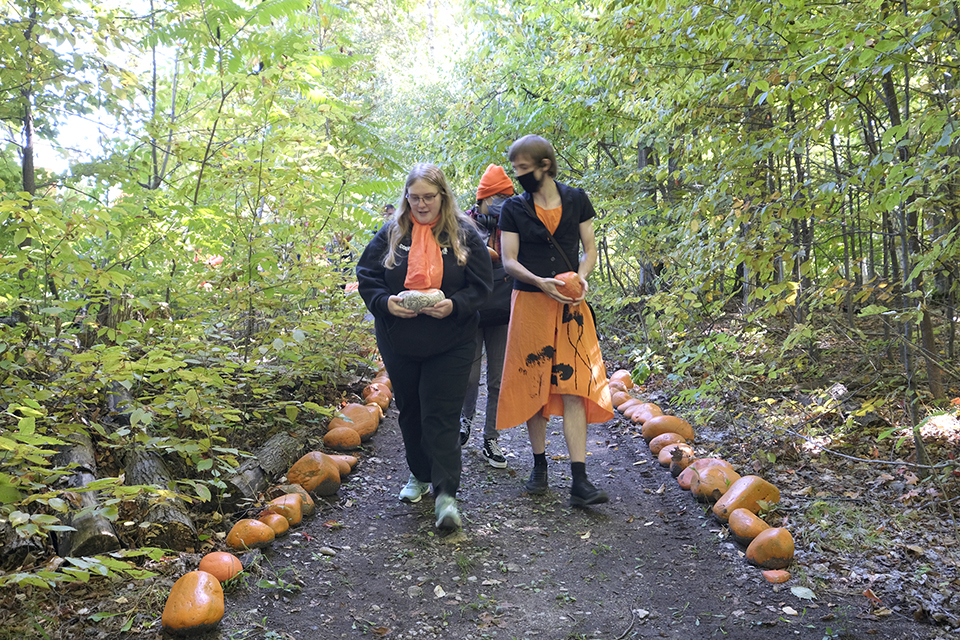
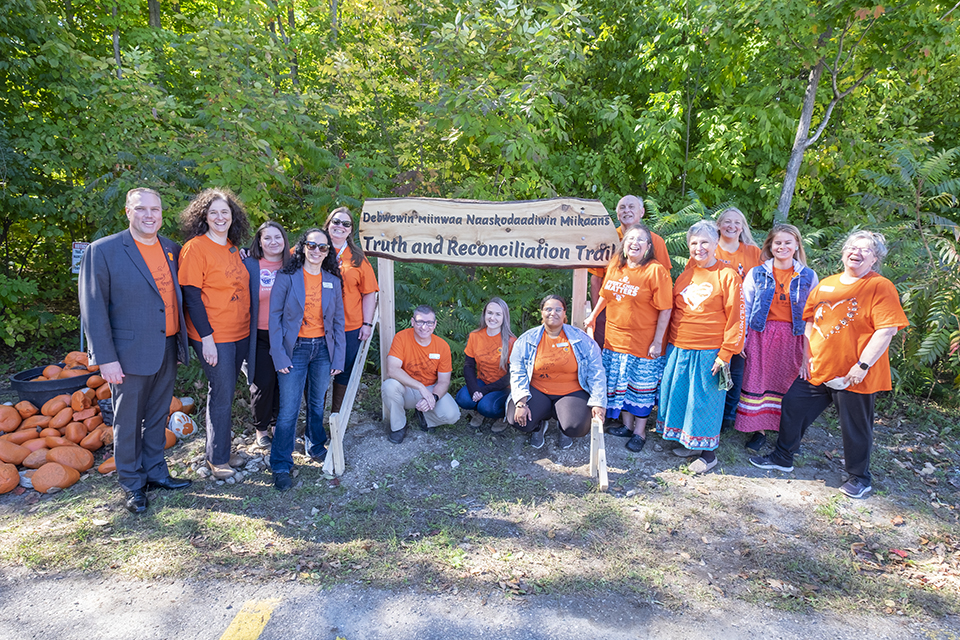
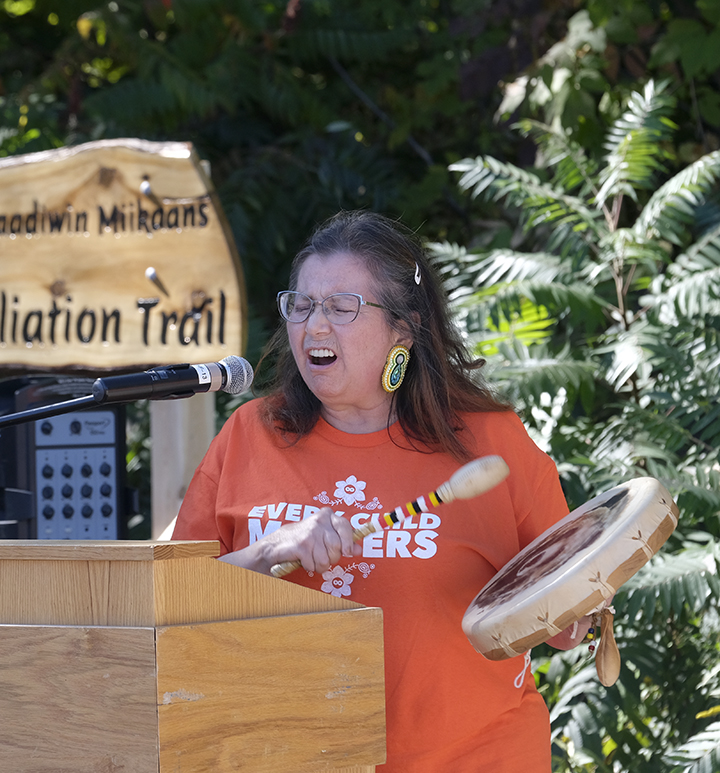
The committee of employees who led the development of the trail is working toward a vision for the path’s expanded use.
They’re exploring trail markers and learning stations to promote Indigenous ways of knowing and being. They also plan to hold annual stone painting events on the National Day for Truth and Reconciliation, to lengthen the trail and encourage ongoing reflection and dialogue.
That same planning committee, comprised of Professor Lance Triskle, Field Officer Angela Foster, Associate Dean Megan Fenton, and former Indigenous Student Advisor Mercedes Jacko, was honoured this spring with a Georgian College Board of Governors’ Team Award for exemplifying Georgian’s commitment to Truth and Reconciliation. Greg, one of three Georgian employees who nominated the team, explains that their vision for the trail is one the Georgian community must support and build upon.
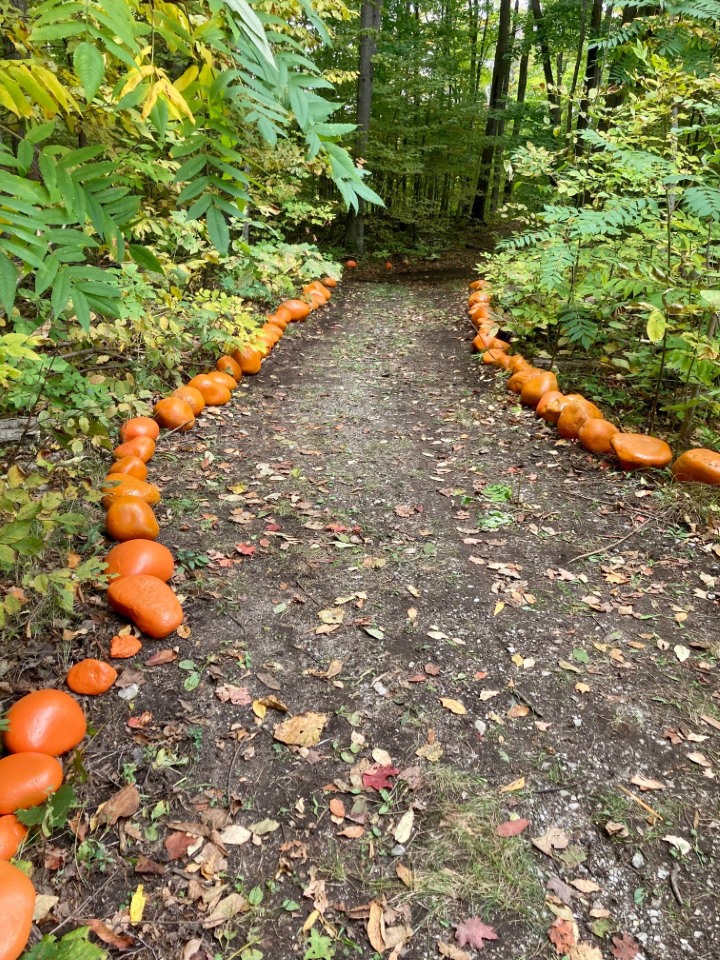
“They’re to be commended for initiating this work. It’s in its first phases now. There is still much to do,” he says. “I’d also like to thank the team for reminding us that our mother earth is the greatest teacher – providing our greatest classroom and learning environment.”
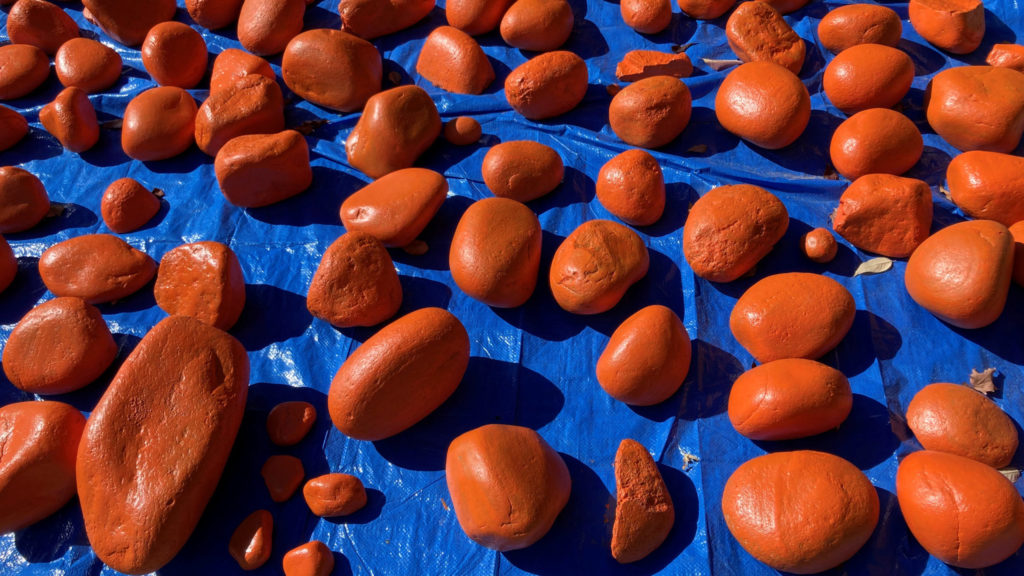
About Georgian’s commitment to reconciliation and Indigenous education
Georgian was named the 2022 gold winner of the Indigenous Education Excellence Award, presented by Colleges and Institutions Canada (CICan). Graduates of Georgian’s three Indigenous-focused academic programs are the next generation of Indigenous community leaders. The college continues to address the loss of Indigenous language by producing language champions critical to cultural survival.
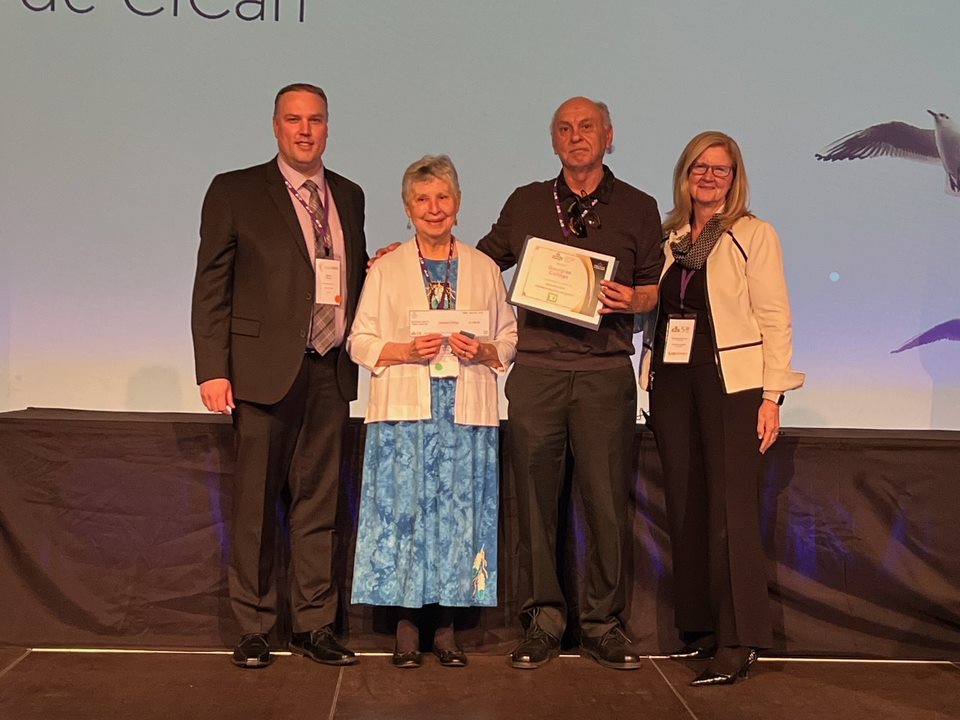
An Indigenization strategy focused on the infusion of Indigenous curriculum, faculty training, Indigenous knowledge sharing, and enhancements to physical and virtual space is underway, with advancements in each of the seven principles in the Indigenous Education Protocol. The road to Truth and Reconciliation is reflected in the college’s strategic and academic plans.
All of this important work is informed and guided by Indigenous leaders, including representation on the Board of Governors, the Elder’s Advisory Circle, Visiting Elders, and the Anishnaabe Education and Training Circle.
This post was originally published in July 2022 and updated in October 2022.